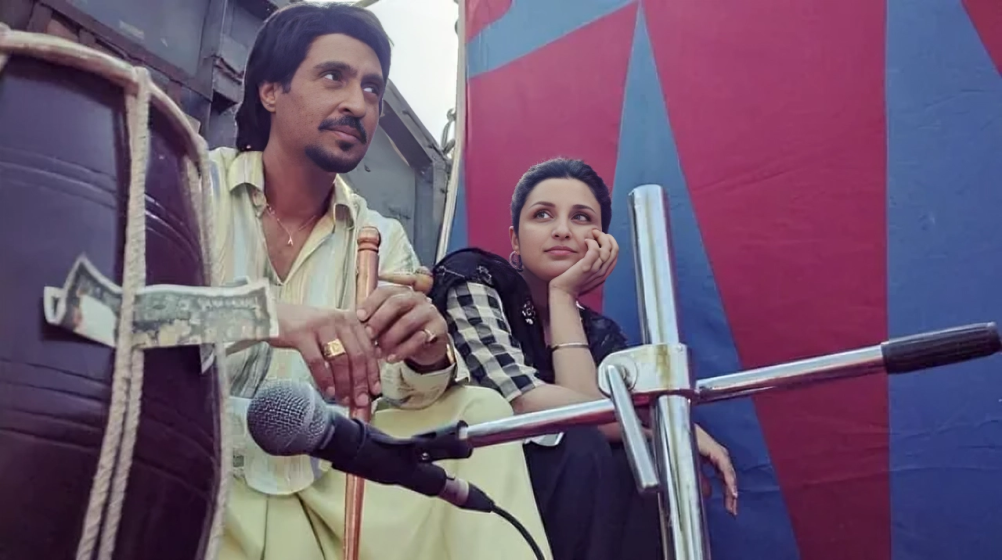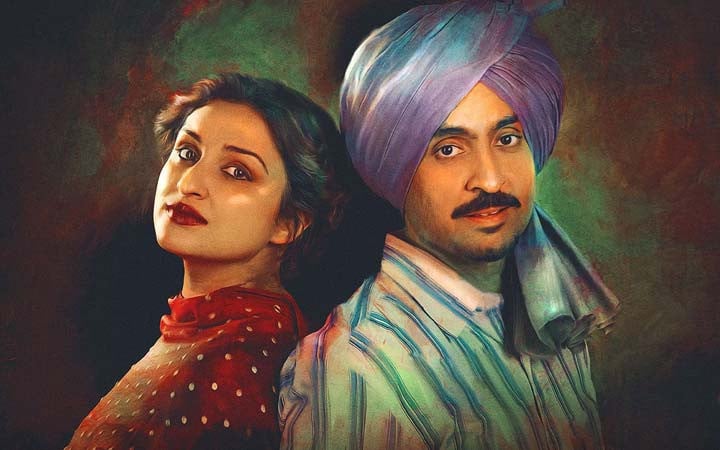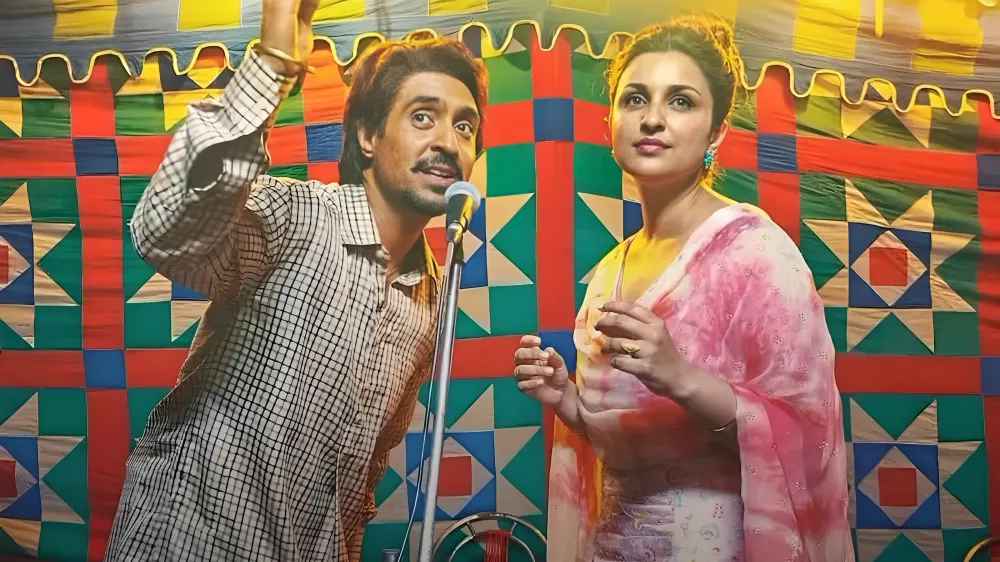'Chamkila' review: Parineeti Chopra shines in a boring film about a brilliant man
In attempting to hold a mirror to society, the film inadvertently exposes the fractures within our societal fabric
KARACHI:The high art versus mass art has been a longstanding fixture in academic journals and cultural analyses, tracing its origins back to the very inception of art as an industry. On one side, advocates of high art uphold a vision wherein artistic excellence is intricately intertwined with broader societal refinement. Conversely, mass art emerges organically from grassroots movements, boldly challenging and disregarding any value-laden criticisms hurled its way.
What sets mass art apart, perhaps, is its immediate and profound cathartic impact; works like Abrarul Haq's Billo De Ghar, Rahim Shah's Gham, or Kaifi Khalil's Kahani Suno possess a remarkable ability to permeate every facet of society, seemingly destined for absorption and consumption. Unbound by conventional notions of virality and impervious to the judgments of cultural gatekeepers, mass art flows effortlessly like a river in flood.
Chamkila the legend

Amar Singh Chamkila knew he loved to play music but what he didn’t know he had was the ability to funnel down the crudeness of mass desire into rhyme without reason – a combination that artists and musicians around the world would die to have but Chamkila was killed for having. Imtiaz Ali’s take on the life of arguably Punjab’s most popular singer is as transparent as the life of a man who walks naked in a society full of veiled hypocrisies; it’s brave, honest, rebellious, but it’s also incredibly boring at places with a very stylish yet lazy beginning.
The film tries to remain true to Chamkila’s reluctant vulgarity and humanises him with a rather well-researched, passionate portrayal by a turban-less Diljit Dosanjh but something remains amiss. Even if the real Chamkila was as boring a person as revolutionaries usually are when you look at them as human beings, the film demanded a bit more swagger, or to put it more crudely, the Chamkila of the narrative has the makings of a renouncer but not the complexities or the passion with which a fakeer renounces. It’s essentially a film driven by a passion for music that fails to build up that passion or the passion for which a passionate star would find a bullet ripped through his chest.
Missing the mark

It’s clear from the beginning that Ali was aware of the limitations such a biographical account would bring to his signature platter of folklore-inspired romances that transform the lover and the beloved as they decide to see the world through their hearts and not minds. Yes, the lover and beloved die in this film too, much like the many folklores that have inspired Ali’s storytelling but the real Sassi, Heer, or Hani in this story is the music itself.
One might say that Ali fails to establish the ecstatic relationship between music and Chamkila as finely as he has done between the lovers of his previous offerings. His latest offering gets so intoxicated by facts that it forgets to establish music as a character, despite almost the entire film shaking with the sound of Toomba and Parineeti Chopra’s extraordinary singing and native command of the Punjabi language. The fans will bleed with praises for Dosanjh but it is essentially the muted, understated, and enigmatic complexity of Chopra’s Amarjot that lingers in your mind like the desert sun.
A mirror for the blind

Treating the film as a true crime saga, alternating between past and present, breathes life into its narrative. Characters converge to mourn the untimely demise of Chamkila and Amarjot, recounting their extraordinary lives as though lamenting memories that should have been celebrated rather than mourned.
Even the story only comes to a close when the investigating police officer comes to terms with Chamkila’s vulgarity being an extension of his and his audience’s humanness. While the clash of society’s hypocrisy and Chamkila’s honesty makes for a relevant discourse for an increasingly extremist and polarised South Asia, it also works against the film, given how we have become so used to people getting excommunicated and even stoned to death for straying from the prescribed path.
In attempting to hold a mirror to society, the film inadvertently exposes the fractures within our societal fabric. It's a mirror that's been shattered, reflecting not the faults of Ali or Chamkila, but rather the collective failings of our society at large.
RATING: 3/5
Verdict: Amar Singh Chamkila tries to be a slow-burn saga but succeeds only partially. It’s not your typical family entertainer.
Have something to add? Share it in the comments


COMMENTS
Comments are moderated and generally will be posted if they are on-topic and not abusive.
For more information, please see our Comments FAQ